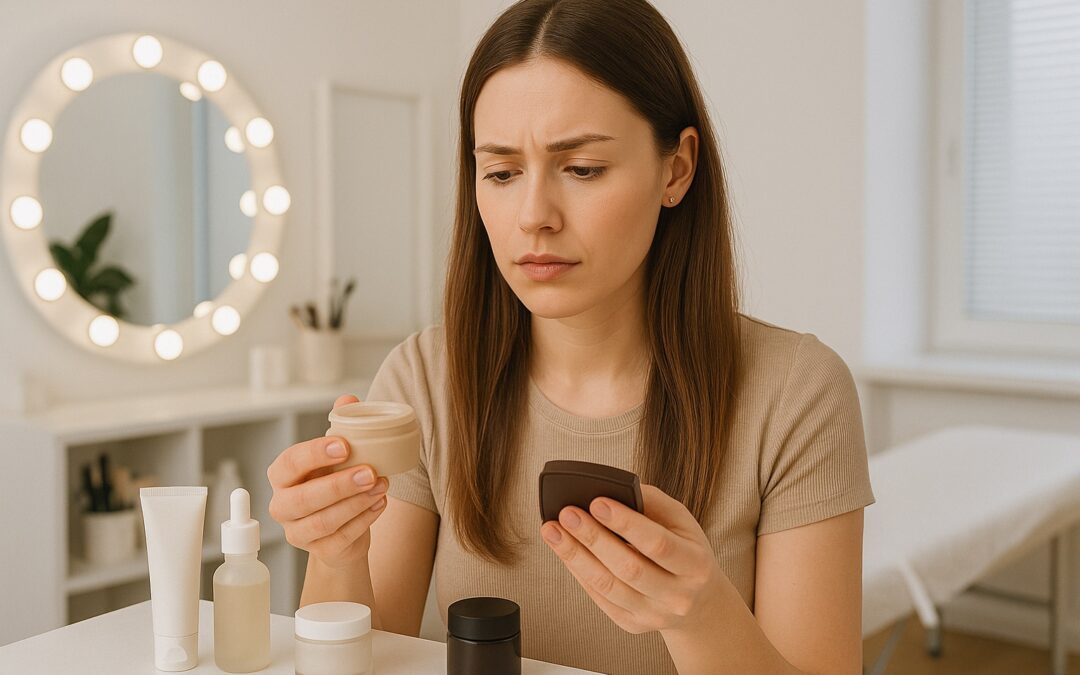Makeup expiration dates. Do they really matter?
If you’re like most beauty lovers, you’ve probably held onto that favorite lipstick or eyeshadow palette just a little too long.
But did you know expired makeup can do more than just underperform? It can actually harm your skin.
Whether you’re a DIY beauty enthusiast or training to become a professional makeup artist, understanding makeup shelf life is essential, not just for hygiene, but also for client safety and skin health.
Let’s explore when to toss your products and why expiry dates matter more than you think.
Why Do Makeup Products Expire?
All makeup just like food or medicine has a shelf life.
Once opened, products are exposed to air, bacteria, and changes in texture or chemical stability. Over time, the preservatives in the formula break down, and that once-great product can become a breeding ground for bacteria, yeast, and mold.
Using expired makeup can lead to:
- Breakouts and irritation
- Eye infections or styes
- Rashes and allergic reactions
- Reduced performance (patchiness, smell, or poor texture)
It’s especially important to keep an eye on products used near sensitive areas, like eyes and lips.
How to Tell If a Product Has Expired
A lot of makeup packaging includes a symbol that looks like a jar with an open lid and a number inside (e.g., 6M, 12M, 24M).
That tells you how many months the product is safe to use after opening. If you’re unsure, watch for these common signs:
- Change in smell: A sour, musty, or “off” odor is a clear red flag
- Texture changes: If it’s clumpy, runny, dry, or separated, it’s time to toss
- Colour shift: Has the shade faded, darkened, or oxidized? That’s a sign it’s past its prime
- Irritation: If it suddenly causes redness, itching, or stinging, stop using it immediately
Best Practices for Extending Shelf Life
Want your makeup to last longer and stay safer? Follow these habits:
- Wash your hands before applying makeup
- Avoid sharing products, especially eye and lip items
- Don’t double dip, use clean brushes or spatulas
- Keep lids tightly closed and store in a cool, dry place
- Regularly clean brushes and tools to avoid bacteria transfer
These practices aren’t just great hygiene, they’re also part of what professional estheticians and makeup artists are trained to do.
What Every Beauty Pro (and Client) Should Know
As a future esthetician or makeup professional, your clients will trust you to use safe, clean, and high-performing products. Using expired makeup or failing to sanitize tools can lead to infection and damage your reputation.
At Modern College, students in our Esthetics programs are trained in best practices for skin safety, hygiene, and professional cosmetic use. Whether you’re preparing for the spa floor or the photo shoot, these are non-negotiable skills.
The Bottom Line
Makeup may be glamorous but behind the scenes, it’s serious business.
Expired cosmetics can do more harm than good, especially when used near sensitive areas. If it smells weird, looks different, or is past its expiry window, it’s time to say goodbye.
Looking to build your skills in beauty safety, makeup artistry, and professional skincare? Modern College’s diploma programs can help you turn your passion into a polished career. Contact us today!

